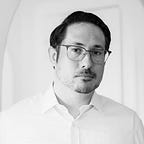Building the Vallejo People’s Archive
How Open Vallejo is unearthing and preserving long-buried records to support local democracy
“Working within community,” wrote bell hooks, “we are able to experience joy in struggle.” That is the promise of Open Vallejo. And it has proved to be the foundation of my time with the John S. Knight Community Impact Fellowship at Stanford University thus far.
As a JSK Fellow, I am building on Open Vallejo’s award-winning investigative reporting to examine how democracy came to be so broken in one small, suburban California city. This requires examining the movement and evolution of white supremacist structures, history and ideologies that have impacted the lives of so many of the city’s residents, much of which can be found in the city’s own public records.
Nestled between Silicon Valley’s glittering startups and Napa Valley’s verdant fields, my hometown of Vallejo, Calif. is a working-class community of 120,000, and one of the most diverse places in the country. It was once home to the Mare Island shipyard, which for more than 140 years served as the city’s primary economic engine and which attracted people fleeing the racial terror of the South.
It is in this space, and others like it, that American hegemony was built — and arguably lost. The uneven economic retreat of the post-Cold War era left places like Vallejo abandoned. The sailors and Marines who once poured from the bars are long gone now, the buildings quiet as mausoleums. The cranes have long been still in the sky. And here, as elsewhere, justice is — and always was — elusive.
The legacy of Jim Crow still stalks the descendants of emigrants who fled the racial terror of the South to work at Mare Island, at Hunters Point in San Francisco, in Richmond and Oakland and at Port Chicago. Vallejo was a “Navy town” where policing was more about maintaining order than enforcing the law.
In Vallejo, about 100 mostly-white cops hurt and kill residents at a higher rate than almost any other department in California, according to data collected by the advocacy organization Campaign Zero. Preliminary Open Vallejo research indicates that since 2000, one in ten homicides have been at the hands of law enforcement, and that Vallejo police are about twice as deadly as their counterparts in nearby Oakland — which for years has been under federal oversight due to that department’s endemic violence and corruption. Meanwhile, Vallejo’s Black, brown, and Latinx residents suffer disproportionately; those who speak up often find themselves threatened, harassed, driven out of state, or worse.
And while Oakland, Richmond, San Francisco and other nearby cities have made strides toward reforming their police departments, Open Vallejo’s reporting reveals Vallejo officials’ personal aversion to reform. Tens of millions of dollars in looming civil rights liability and the threat of a second bankruptcy have yet to focus officials’ attention.
But our reporting thus far suggests that public exposure can bring about meaningful change.
My Fellowship project is focused on how to efficiently gather, archive and analyze both contemporary and historical primary-source documents before they disappear. Important files have a tendency to go missing here even under the best of circumstances, and some officials have alleged their colleagues dispose of information that might prove inconvenient for the city or its police department. For example, last month Open Vallejo reported how a private drone that recorded the city’s most recent police killing bypassed evidence-handling protocols; investigators later found the footage had been “overwritten with zeros’’ due to causes unknown. Even something as simple as gaining access to councilmembers’ voting records is a challenge: despite the fact that the city uses an electronic voting system, the results are apparently not recorded, forcing residents to scrub through hours of video footage to learn the most basic facts about their local government.
With the support of the JSK Fellowship, Open Vallejo is examining ways to scrape and make useful contemporary municipal data and records; create a digital archive of what may have been the city’s only Black woman-owned newspaper, The North Bay Progress; and democratize other information locked in local museums, basements, storage units and hard drives. If experience is any guide, having this information available will help our newsroom spot patterns, find connections and identify opportunities to further illuminate the city. With a little luck, this in turn will help us unstick the levers of local government, in joint effort with our neighbors. We want to help tell the story of Vallejo through the experiences of Vallejoans themselves.
The JSK Community Impact Fellowship is vital to this process. In addition to the access the fellowship provides to Stanford’s resources, I have found the camaraderie, intellectual challenge, sound counsel and interpersonal support of my colleagues transformative to how I approach the work. They have helped me think about the intersection of technology, humanity and community in ways that would have taken far too long to get to on my own — if I ever would have. It is clear to me, and I think to all of us in the 2021–2022 cohort, that the relationships we have formed will endure well past this fellowship cycle.
If this project is successful, it will open Vallejo’s municipal dysfunction up to deeper and broader scrutiny, giving residents a chance at building a more just and transparent city, while also providing a working model to help communities unearth, analyze and put to productive use information about their own local democracy.
